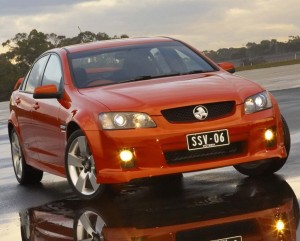In a bid to convince General Motors to keep building vehicles in Australia, workers at the maker’s Holden plants have approved a new labor pact that will help reduce production costs.
Rising costs have already prompted Ford to announce plans to cease building cars in Australia within the next two years. GM was expected to be the next to pull out of the market, in part because of a steadily rising tide of imports from Japan.
“First and foremost, I would like to thank Holden’s workforce for their loyalty and flexibility,” said Holden Chairman and Managing Director, Mike Devereux. “Changes like this are never easy and the ‘yes’ vote is a huge commitment from the hard-working men and women of our Holden team.”
Devereux described the concessions as “crucial” in keeping the Holden operations competitive at a time when Japanese imports are benefiting from the weak yen.
“Australia is a high-cost country,” he noted, “not just for making cars but for making anything. It was critical that we reduced our costs and delivered flexible and contemporary work arrangements.”
Holden officials worked with union representatives to find ways to cut costs while minimizing the impact on workers, the company said. The payoff should come if and when the GM subsidiary launches its so-called Next Generation vehicle program, with savings estimated at approximately $15 million per year.
The concessions will only go into effect once the Next Generation vehicle program is confirmed for Holden’s Elizabeth plant.
“We can’t survive as a local manufacturer unless we reduce our costs by being as efficient and globally competitive as possible,” said Devereux.
Despite the increasing competition from imports, Holden has continued to maintain a strong presence in the Australian market with its Cruze and Commodore models two of the top 10 cars sold in the country.
“We are clearly producing the types of cars that Australians want to buy,” said Devereux. “But Holden has to be globally competitive and so does the country’s industry policy. As a local manufacturer, Holden is asking for a fair go. Australia must be able to compete fairly on the world stage.’
Such concerns have been echoed over the past decade as a stream of auto manufacturers has closed their Australian factories. Ford announced it would shut down its two assembly lines in October 2016, cutting 1,200 jobs in the process, after losing almost $600 million over the past five years.
Earlier this month, GM said it would stop marketing its Opel-branded products in Australia, declaring they were “not financially viable” in the market. Opel had only been introduced “Down Under” a year ago, with products being shipped in from Germany, Spain and the U.K.
The long-term viability of GM’s main Australian brand has also come under scrutiny considering its own sales struggles. Holden sold just 57,000 vehicles during the first six months of the year, down from 61,000 during the same period in 2012.
Paul A. Eisenstein contributed to this report.

